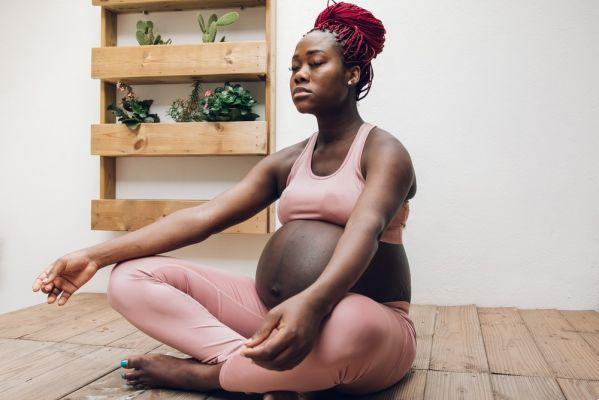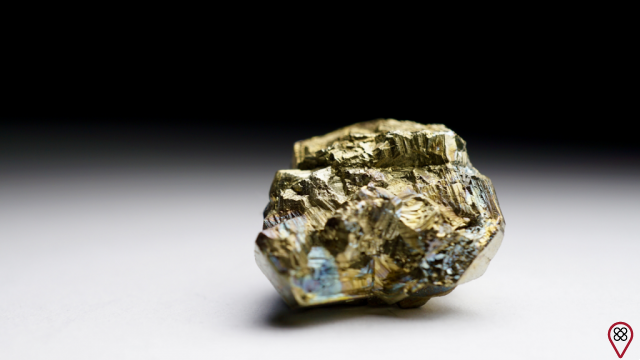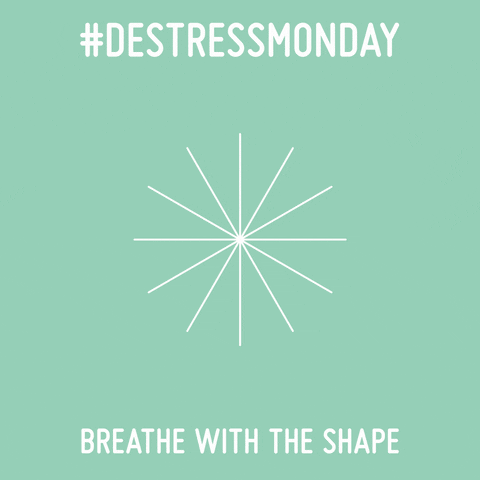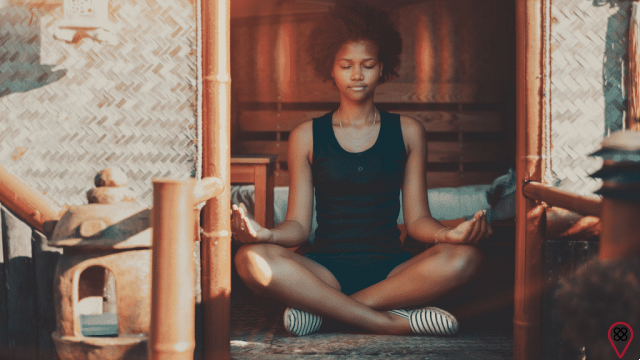How many thoughts do we have a day? Countless, isn't it? Did you know that these thoughts can reach 50? The information was shared in 2020 in the scientific journal Nature Communications, by Dr. Jordan Poppenk, Ph.D. in psychology, and her master's student Julie Tseng.
It is to be expected that it is often difficult for us to clear our minds and think clearly. And this is where the benefits of meditation come into play! But what is meditation?
Throughout the text, we will explain what meditation is, the origin and history of meditation, as well as its benefits for the physical, mental and psychological, as well as techniques for learning to meditate, especially for beginners.
What is meditation?
Meditation is a widespread practice throughout the world as a relaxation technique and as a means to the deep knowledge of the Being. Meditating means trying to turn your gaze to your inner self for psychic and mental health benefits. It allows you to feel regenerated and to face adversity and life changes.
Generally speaking, it is fair to say that meditation is a state of mind of profound peace, in which you are simply focusing on the present moment. That is, meditation is one of the relaxation techniques born in the context of Eastern philosophical practices, for which the objective is to achieve a state of psychophysical calm. Spiritual leader Dalai Lama claims that meditation is the “natural state of consciousness”.
Therefore, it is a common practice in many religions and today it is used by many people both for spiritual purposes and to reduce stress and improve mental, emotional and physical health.
Source
Its origin dates back to India thousands of years ago. It is unclear since when it has been practiced, but there are documents that mention it dating back to 1.500 BC. However, historians consider that meditation was already practiced about 3.000 years before our era.

Meditation on history
Meditation may be as old as humanity itself, given the potential meditative abilities of our ancestors. However, different currents of thought place the roots of the practice involved in a set of techniques and rituals originating in the Asian continent, which have come down to us in the form of artifacts and scriptures.
The arrival of meditation in the West came much earlier than one might believe. In 20 BC, Philo of Alexandria wrote about spiritual exercises involving mental concentration. In the third century of our era, the Greek philosopher Plotinus developed meditation techniques. Other exponents who introduced the practice to this part of the world were the desert fathers in the Middle East and St. Augustine.
There is also evidence of meditative practices in Judaism during the Bronze Age and there is evidence of this in the Tanakh (The Hebrew Bible). As Buddhism grew in the East, so did meditation. In the XNUMXth century, the Japanese monk Dosho opened the first meditation hall in that country.
This practice may also be related to Islam. In the 12th century, it represented an important aspect of Sufism (Islamic mysticism), which was practiced by breathing heavily and repeating sacred words.
However, some studies claim that meditation came from China and India, and the oldest accounts of meditation date back to around 1.500 BC Other historians are not sure where it came from, but it is certain that it spread to various peoples and different cultures.
benefits of meditation
Practiced by Buddhist monks for thousands of years, this ancient discipline is spreading throughout the modern world. Do you know the benefits of meditation and how it helps you in your daily life? We explain how meditation can change your life and make you smarter, happier and healthier.
In fact, several scientific studies prove the benefits of meditation and the impact that this practice has on physical and mental health. Therefore, we will share some of these researches throughout the text. And more: currently, many studies are still in progress and seek to understand more about this practice. The benefits occur in the physical, mental and spiritual fields.
for the physical
There are several benefits of meditation for the physique. As there is a decrease in blood pressure, consequently there is a relaxation of the muscles. This is why those who practice meditation:
1 — Protects the immune system:
When you meditate, you create positive emotions and sensations that strengthen your immune system;
2 — Promotes a healthy heart:
With this relaxation practice, you can slow down the heart and dilate the blood vessels, which increases the flow of blood through the veins. If you suffer from coronary heart disease or have high blood pressure, these exercises go a long way in preventing mortality risks.
3 — Harmonizes or endocrine system:
With meditation, you can harmonize the endocrine system, which is responsible for the secretion of hormones. When you meditate, you release endorphins, the happiness hormones, and maintain a lower level of the stress hormone cortisol.

stop the mind
With the rush of everyday life, it is common for people to have a restless mind. That's why meditation brings mental benefits such as:
1 - Increased productivity:
Meditation helps to increase productivity and your creativity. Companies like Google, Nike and Amazon are committed to implementing meditation programs that help employees reduce stress, increase workflow and collaboration. The area of neuroscience has proven that meditation makes areas of the brain dedicated to naivety benefit from relaxation. There is even a branch dedicated to this sector called business mindfulness.
2 — Relieves stress, anxiety and depression:
Meditation allows you to reduce feelings of stress and anxiety, as reported by doctors Richard J. Davidson and Antoine Lutz, in a 2013 study published in Scientific America. They confirmed that mindfulness and Zen meditation allow the brain to adapt to reduce its symptoms. Likewise, it was also possible to verify that this practice reduces the density of brain tissue, which is associated with the feeling of worry.
Meditation can reduce cortisol levels and help you feel more relaxed, a state of stillness and stability that you can achieve with just 10 minutes of practice. It also allows you to train your mind to focus on the present and reduce anxious thoughts, which has a calming effect that can treat problems like depression, insomnia, moodiness, and loss of appetite.
3 — Improves the quality of sleep:
It is also very effective if you suffer from sleep disorders such as insomnia. You can improve the quality and quantity of your sleep after just a few sessions of this relaxation technique. And, as you know, getting a good night's sleep is essential to functioning well during the day.
4 — Reduces the headache:
If you practice relaxation exercises daily, you will get very positive results, mitigating and reducing the number of migraine episodes, as well as their intensity.
for the spirit
And there are not only benefits for the physical and mental. For the spirit there is a deep sense of self-knowledge and positive points exist for different areas of life.
In this case, meditation connects you to your spirit, regardless of religion. It takes you beyond any limited identities and labels, into the depths of who you really are.
You, as your true Self: joy, love and peace. With the practice of spiritual meditation, you can experience a shower of grace and bliss, a deep sense of connection and oneness. Of course, this experience is unique to everyone.

How to meditate?
Now that you know some of the main benefits of meditation, the next step is figuring out how to start practicing it. Did you know that it is possible to start meditating using some techniques? But first, the main tip is to start small. You can, for example, start with 5 minutes a day, sitting on the couch and watching your breath, focusing on the present moment. At first it can be challenging!
Remember that meditation focuses attention on the breath and the present. Some people even try to meditate while walking, for example, or when they are taking a shower. The simple fact of paying attention to the present moment already makes a big difference in your life, since we are always thinking about something.
You can start sitting with your eyes closed and in the classic lotus or half lotus position, with your legs crossed, taking care to keep your spine straight and adopting a natural position for your neck and head. And breathing is deep and slow, low and diaphragmatic.
And how to meditate alone? If you want to practice meditation, here are some steps you need to follow:
1 — Find a quiet place to sit or lie down, preferably at home;
2 — Set a time limit. If you're just starting out, choosing a short time can help, like five or ten minutes;
3 — Watch your body. You can sit on a chair, on the floor, cross-legged, lying on the bed… Anyway, as you prefer. Just make sure you're in a stable, comfortable position that you can stay in for a while;
4 — Feel your breath. Follow the sensation of your breath as you breathe in and out;
5 — Watch when your mind wanders. Inevitably, your attention will loosen up and wander elsewhere. When you find your mind wandering, just bring it back to the breath;
6 — Be kind to your mind. Don't judge yourself if she rambles on, it's normal. You just need to turn your attention to the breath;
7 — Close gently. When you are done meditating, gently lift your gaze and open your eyes. Take the next moment to observe anything in the environment. Pay attention to how your body is feeling right now — and not just your body, but your thoughts and emotions as well.
guided meditation
In guided meditation, a teacher prepares you for meditation and accompanies you in silence. In this case, follow the instructions carefully so that you can concentrate.
Especially in the beginning, meditation can be very challenging. But that's exactly where a guided meditation can be helpful to take your first steps into the meditative state and get to know how it works.
There is even meditation to sleep, suitable for people who have anxiety or insomnia. Therefore, there is also meditation for anxiety, which includes techniques aimed at relaxing and reducing your symptoms, as well as morning meditation, suitable for those who want to start the day peacefully. For these three options, there are guided meditation recordings available on the internet.
songs to meditate
Do you know how to meditate with meditation music? Music can make you happy, and if you have sleep problems, it can also help you sleep better. It can help you to eliminate stress, forget about problems and still has many beneficial properties.
In the increasingly stressful lives we lead, it is clear that in order to survive and not go crazy, we need to find time for ourselves every now and then. And why not use that time to meditate? Perhaps helped by the right meditation music, which allows us to step away from our daily problems, rediscovering and reactivating the positive energy that is within us.
Yes, because if you're looking for music made specifically for use in meditation, you might actually find it. That is, there are benefits to meditating with music, and one of them is staying calm. And this can be a great alternative to start if you don't meditate yet.
However, this type of relaxation music usually has the following things in common:
— Smooth and even: never bumping with intense moments;
— Slow motion: Never faster than 60 beats per minute;
— Non-melodic: it does not have a “catchy” melody that could distract you;
This type of music may or may not incorporate the peaceful sounds of nature, including sounds from:
- Falling rain;
- Sweet thunder and rain;
- Running water in a stream;
- Beach waves;
- Wind in the trees;
- Birds.
These meditation songs can be easily found on online platforms such as YouTube.
You may also like
- Find out how to get rid of sleep while meditating
- Explore the relationship between body and mind
- Follow 5 tips to make meditation a habit
That's why meditation is a real training for our brain. By achieving inner peace through meditation, we contribute to the realization of outer peace in our world. So the benefits of meditation are individual; however it is a way of contributing a grain of sand to make the world a better place as a whole, because love expands without limits.

























